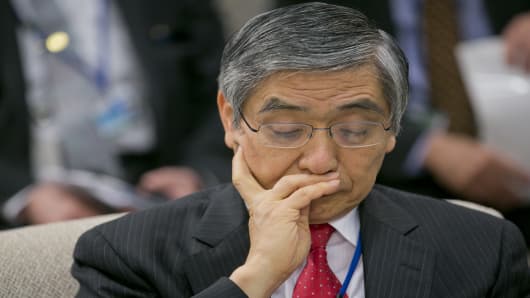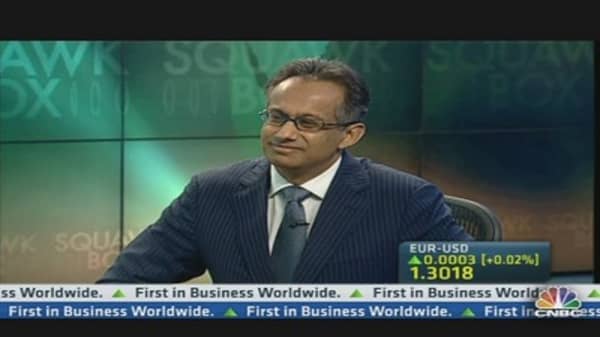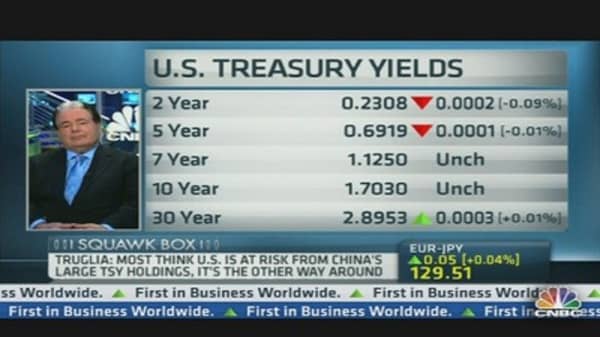The Bank of Japan (BOJ) meets on Friday for the first time after it made a radical shift in policy earlier this month and market watchers are now looking at the central bank's next move in its battle to end deflation that has dogged the world's third biggest economy for two decades.
The BOJ, which has traditionally adopted a cautious approach, shocked markets at its last meeting on April 4 when it said it would pump $1.4 trillion in to the economy in less than two years and double its monetary base to meet a 2 percent inflation target by 2016.
With that inflation target in mind, Japanese media have been awash with reports in the past week that the BOJ will raise its inflation forecast to at least 1.5 percent for the fiscal year ending March 2015. The current forecast is 0.9 percent.
As well as holding a policy meeting on Friday, the BOJ is due to release its semi-annual forecasts on economic growth and inflation trends.
(Read More: Unlike the Fed, BOJ's QE Won't Unleash Hot Money)
"One way to implement unconventional monetary easing is to target the inflation forecast and the thinking goes that if the forecast doesn't materialize this would indicate an intensification of the unconventional measures," said Tim Condon, head of research for Asia at ING Financial Markets in Singapore.






